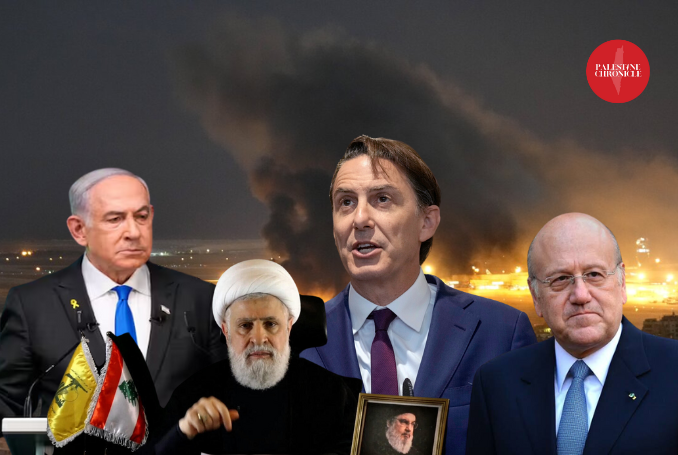
The Israeli cabinet is expected to approve a US-mediated ceasefire agreement with Lebanon on Tuesday.
Israeli Prime Minister Benjamin Netanyahu has approved the plan “in principle”, according to his office’s spokesperson, though the plan continues to face widespread domestic criticism.
The deal outlines a 60-day cessation of hostilities, with hopes of laying the groundwork for a long-term resolution.
Lebanon has reportedly already agreed to the proposal, with the Lebanese Foreign Minister Abdallah Bou Habib expressing cautious optimism about the deal’s announcement later Tuesday.
Death Toll Reaches 3,670 – Israel’s War on Lebanon Continues
Bou Habib stated that the Lebanese army is prepared to deploy 5,000 soldiers in southern Lebanon once Israeli forces withdraw.
He also noted that the US might assist in rebuilding infrastructure damaged by Israeli strikes.
However, he emphasized that Hezbollah’s presence remains tied to the ongoing Israeli occupation, saying, “We cannot stop the resistance as long as there is occupation.”
US Position
US envoy Amos Hochstein had reportedly warned Israel that American mediation would cease without progress.
The White House confirmed President Joe Biden’s commitment to the process, with officials describing the trajectory as positive but cautioning that “nothing is final until everything is finished.”
Gallant Calls for ‘Painful Concessions’ – Israel Faces Mounting Losses in Gaza, Lebanon
US State Department spokesperson Matthew Miller reportedly echoed these sentiments. According to CNN, he told reporters on Monday that “just because an agreement is close” does not mean it will happen” and described the process as “incredibly frustrating.”.
Part of the agreement includes US forces temporarily supervising the ceasefire in southern Lebanon, similar to the role of UNIFIL peacekeepers.
Mixed Reactions
The proposed ceasefire has sparked controversy within Israel. Finance Minister Bezalel Smotrich and National Security Minister Itamar Ben-Gvir have strongly opposed the deal, with Ben-Gvir describing it as a “historic missed opportunity” to defeat Hezbollah.
Meanwhile, Defense Minister Yisrael Katz emphasized Israel’s readiness to respond to any violations of the ceasefire.
Netanyahu’s coalition faces internal divisions, with some ministers supporting the agreement for “complex and secret reasons,” according to reports in Israel Hayom. Security sources highlighted the agreement’s strategic importance in easing pressure on Israeli forces stretched between the Lebanese and Gaza fronts.
LIVE BLOG: Settlement with Lebanon Nears | Massacre in Jabaliya – Day 417
Despite progress, unresolved disputes remain. Key sticking points include border demarcations and the mechanisms for supervising the agreement’s implementation.
For his part, former Security Minister Benny Gantz criticized the lack of transparency, demanding the public release of the deal’s details.
Northern Israeli settlers, currently displaced, expressed fears that the agreement would allow Hezbollah to regroup.
A resident of Kiryat Shmona told CNN that the deal would be a “surrender agreement”.
(The Palestine Chronicle)
